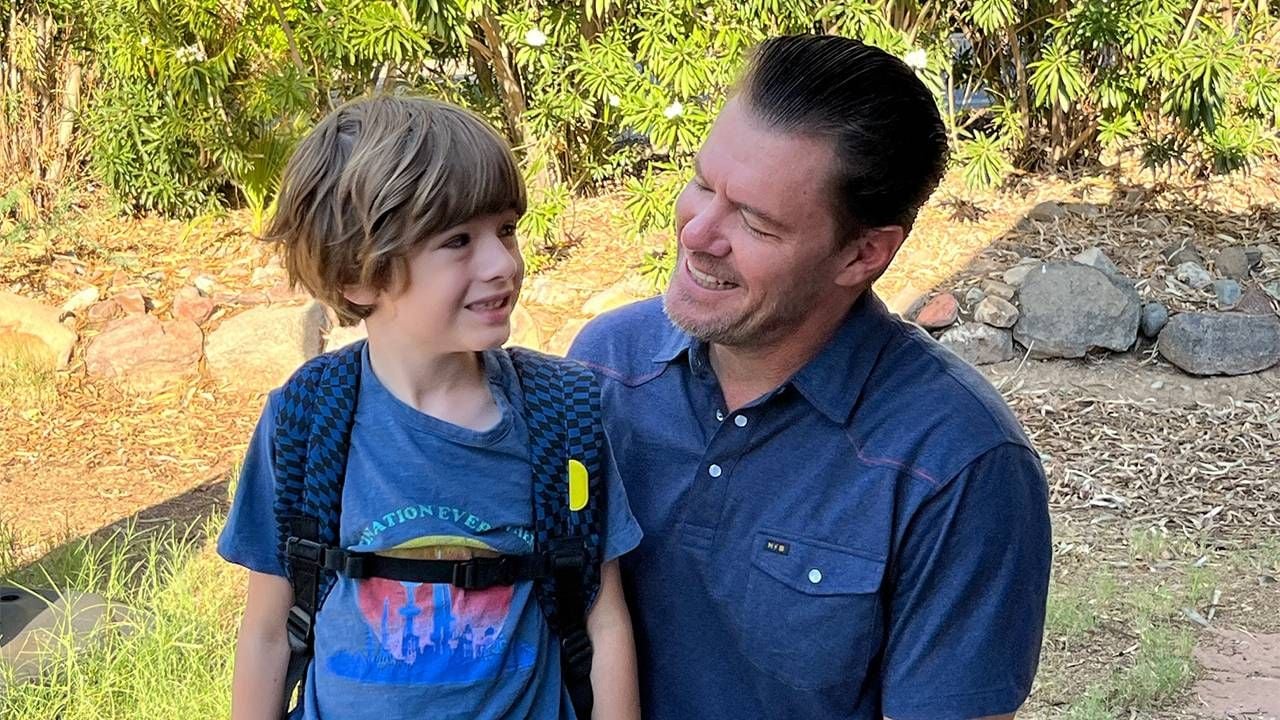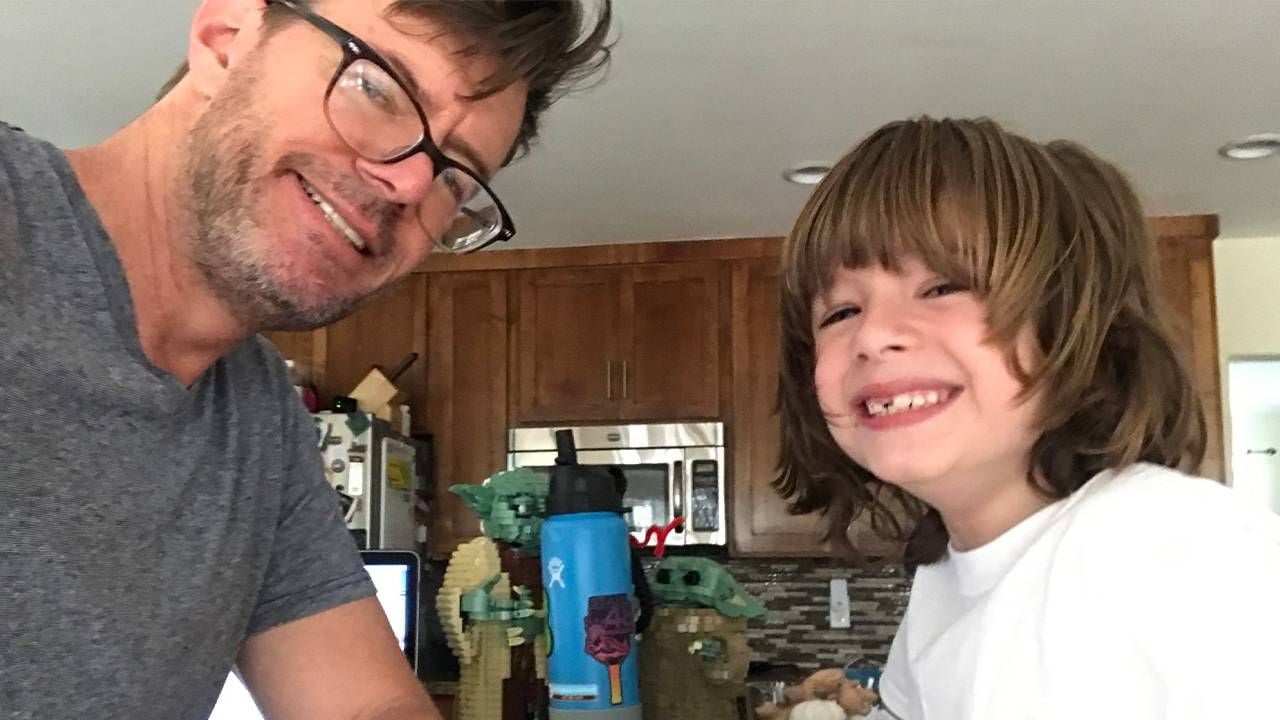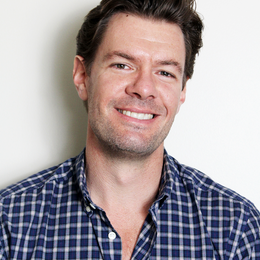Graying on the Spectrum
An ever-expanding bubble of Gen Z autistic youth will soon hit adulthood. What happens when they reach old age?
"It can be very scary, the future," Donna Liebowitz says, reflecting on her three decades of parenting an autistic child. "Either you don't think about it at all or you try to focus on the positive — because if you don't think of the positive, you're just going to drown."

Positive thinking compelled the now-retired artist to immediately seek help when a relative noticed that her toddler daughter, Jennifer, seemed to lack the fine-motor and receptive-language skills typical of a child her age.
When a pediatrician delivered the dreaded autism diagnosis, Liebowitz's optimistic, here-and-now mindset helped insulate her from the inevitable feelings of gloom, even as the family celebrated Jennifer's 3rd birthday and she still had not spoken her first word.
But still Liebowitz fought. Frustrated by the lack of early-intervention services available to children affected by Autism Spectrum Disorder (ASD) in suburban New Jersey circa 1996, she patched together a custom regime of therapies for Jennifer, from intensive speech therapy to motor skills development — at one point, even enrolling her daughter in hypnotherapy.
"What if my husband and I are gone, and no one in my family is there to take care of Jenny?"
As Jennifer aged into adolescence, Liebowitz and her husband, a financial officer in a Manhattan investment firm, encouraged her interests in surfing, cheerleading and other extra-curricular pursuits, to "give Jenny a quote-unquote normal life as possible."
Ultimately, Jennifer went to college and — with the help of an aide — earned a Bachelor's degree in Literature. Today, the 30-year-old lives in a groundbreaking residential community in Phoenix called First Place, which caters specifically to young adults with ASD.
And she's happy, her mom proudly says.
Optimism for the future has clearly been rewarded for Liebowitz. But the "worst-case scenario" nips at the back of her mind, she admits. "And that scenario is 'What if my husband and I are gone, and no one in my family is there to take care of Jenny?'"
A Universal Fear
Hers is a natural — and, it seems, universal fear — for those of us with autistic children, or any child with an intellectual disability. We see homeless camps and read the statistics: upwards of 40% of unsheltered people in the U.S. have cognitive impairments, according to Psychology Today, and wonder if our aging child will someday join them.
"What we find is a huge gap in services for people in the middle part of that disability spectrum. Unless they qualify for Medicaid, there isn't a whole heck of a lot of support."
We see Geraldo Rivera's infamous Willowbrook State School expose and other real-life examples of neglect and abuse of unprotected people with intellectual disabilities and imagine the worst. The average person naturally feels sadness and sympathy when confronted with stories of impaired people falling through the cracks.
For the parent of a child with disabilities, they inspire something more like existential terror. It's far too easy for me to imagine Benjamin, my bright, beatific 8-year-old, as a middle-age ward in some dreary, under-managed facility, his once-lively mind stunted by routine and disuse, his memories of the people who loved him reduced to faint, rattling echoes.
These reveries are, I admit, catastrophic and not particularly productive. But often they're part of the bargain when parents start envisioning a life for their child beyond state-funded support services and Individualized Education Plans (IEPs).
Which is to say, when they become adults.
"Adults that are caring for adults with disabilities have many challenges," says C. Grace Whiting, executive director of the National Academy of Elder Care Attorneys and a 2020 Next Avenue Influencer in Aging. "What we find is a huge gap in services for people in the middle part of that disability spectrum. Unless they qualify for Medicaid, there isn't a whole heck of a lot of support."
But I suspect that Ben will always need, at the very least, coaching and oversight, perhaps on a daily basis.
In the case of disability services, "support" is usually synonymous with "dollars," and it highlights a cold, ineluctable fact — the more wealthy a family is, the better equipped they'll be to ensure a humane dotage for their disabled child. But even if a family doesn't have the means to design a trust and cram it full of funds that will pay their child's bills indefinitely, an attorney can help parents navigate the unsteady financial waters of adulthood, Whiting says.
"Leaving the world of IEPs, when you age out of that system and are still under 60, that's when it can be hard to find resources, and that's where an elder law attorney can help … by weighing personal finances against public assistance and how to marry those together."
A Growing Population
According to data released by the Centers for Disease Control and Prevention (CDC), somewhere between 70,700 and 111,600 U.S. youth on the autism spectrum will enter adulthood annually over the next decade — effectively aging out of the support system described by Whiting. This is a massive number relative to just 20 years ago, when ASD prevalence rates were about a quarter of what they are today.
What to do with these young adults — i.e. where to send them or enroll them, and how to best prepare them for the older years that await — is a perplexing question for parents, made all the more perplexing by the ever-wider spectrum of functioning in the ASD population, and varying levels of agency. After all, many young adults in the high-functioning ASD caucus will want little or no parental intervention and will be vocal about it.
I hope Ben is one of them. That's the dream, right? To raise a child with enough self-possession and situational awareness to make informed, strong decisions about their lives, even if you don't always agree them.
But I suspect that Ben will always need, at the very least, coaching and oversight, perhaps on a daily basis — to help focus his energies, develop and maintain his motivations and clearly perceive between threat and friend.

Another Way
While researching a story for the lifestyle magazine I edit in Phoenix, I recently came across a living concept for ASD and cognitively-challenged adults that excited my ASD-dad imagination.
Founded by ex-NFL star Kurt Warner and his wife, Brenda, it's a nonprofit, dorm-like residential community called Treasure House, located in the less-populated northwestern corner of Phoenix. One of its roughly two dozen residents is Zack Warner, the eldest son of the founders, who survived a catastrophic brain injury as an infant and remains developmentally disabled.
Well-staffed and spacious, with a working kitchen and a dedicated airport-style passenger van to shuttle its residents to work and such, Treasure House is an entirely different creature from the bland state-funded institutions of yore. Nor is it a group home, its CEO and hands-on house marm Lauri Tanner is careful to stipulate.
"A group home, to me, is usually a for-profit business, in a residential home, where the staff does shift work and is there around the clock," says Tanner, a registered nurse and former hospital administrator who knows the Warners from their years in St. Louis and was personally recruited by them to run the program. "I don't find [group homes] to be a vibrant community, with consideration to who lives in the house and what their needs are."
"That very moving question of 'Who can care for him or her,' that's what has driven us."
As a private, non-regulated entity, Treasure House does not accept health insurance, but Tanner says the nonprofit model allows her to defray costs for lower-income residents.
She tells the story of one 20-something resident whose mother was murdered in Scottsdale in 2021, leaving him orphaned and unsupported. "So, I found a donor who pays all but $700 [of the $3,200 monthly room and board fee]," she says. "He works full time in the fast-food industry… and pays the remainder himself."
Too bad every autistic adult can't have a Lauri Tanner, I think to myself, calculating the number of Treasure Houses it would take to satisfy America's need for transitional and semi-permanent adult ASD care.
Tanner says the organization is looking to scale its services into other cities, but that the best parents can do is to "find a place with a strong advocacy tradition."
"Love, Accept and then Institutionalize Him"
She's not just talking about places like Treasure House. The advocacy factor also applies to neighborhoods, towns, cities and even states, where IDD (Individual and Developmental Disabilities) care and services can vary greatly.
In this regard, I feel fortunate to live in Phoenix, which was declared "the most autism-friendly city in the world" by PBS Newshour in 2016 due to its myriad ASD services and partnerships.
Arguably, the person most responsible for the city's lofty standing in the autism community is Denise Resnik, founder of the Southwest Autism Research & Resource Center (SARRC), a multifaceted nonprofit organization that has served as a beacon for countless Arizonan families attempting to navigate the strange waters of autism.
"It took 20 years to get [autistic] kids support, maybe it will take another 20 years for the seniors."
She founded SARRC in 1997 after doctors diagnosed her son, Matt, with ASD — delivering the sad news, along with a long-term medical prescription that amounted to little more than "love, acceptance and then institutionalize [him] someday," she remembers.
SARRC is her riposte to that flip parental insult.
Speaking to Resnik proves to be illuminating and a little exciting. She anticipates my questions, and expands on notions with the confidence and knowledge of someone who has considered all of it, many times before. I can see why people in the community view her as something of an ASD guru, which is to say, someone with special vision and a knack for finding solutions.
Many of SARRC's programs and initiatives concern early intervention and behavioral therapy. When Benjamin was 3, my wife and I enrolled him in SARRC's Community School, a novel pre-K program in Phoenix where autistic kids are mainstreamed in the same classroom with typical-functioning children while receiving advanced behavioral therapy.
It was an outstanding formative experience for Ben and his parents alike, showing us a glimpse of an academic world that would celebrate and value our singular little boy.
Building Solutions for Older Adults
In recent years, SARRC has broadened its focus to include support and lifestyle solutions for ASD adults. As her own son aged into his 20s and 30s, Resnik says she was impelled by precisely the same concerns for the future that I have — that all of us ASD parents have.
"You want to increase their level of independence to the greatest degree possible, and reduce cost throughout lifetimes," she says. "That very moving question of, 'Who can care for him or her,' that's what has driven us."
The most tangible byproduct of this new focus is First Place, a SARRC-affiliated apartment community in Central Phoenix for adults with autism, Down Syndrome, traumatic brain injury and other impairments.
"By the time someone who's twenty or thirty now reaches sixty, I'm confident there will be programs and housing to take care of them."
Once again, we find Resnik's special vision at play here — before founding SARRC, she ran communications for one of Arizona's largest homebuilders and developers. She seemed to sense before most in the autism community that creating a space in American culture for our kids would mean physically carving into it.
That could be why Phoenix, long the most development-dependent urban economy in the U.S., has proven such a good fit for autism services: We're accustomed to making room for things.
In any case, Resnik views First Place as an adaptive organism that can and will evolve to meet the needs of its residents as they age.
"It might be the first place some people live before transitioning into fully independent living, but it was intentionally designed as a permanent home for some residents, too," Resnik says, adding that she is looking into older adult-care and multi-generational models across the country to accommodate the first generation of First Place elders.
"We never use the 'f' word here: facility," she says. "It's home in every sense of the word, and we want people developing that long-term connection to home."
Liebowitz, the East Coast mom, says she and Jennifer found nothing in the Garden State that approached First Place in terms of adaptability, support and community.
"She knew it was the right place for her," Liebowitz says.
The plan is for Jennifer's brother to assume a guardianship role when Liebowitz and her husband pass on, or another member of their extended family. But the mother also envisions a time when First Place develops the appendages to care for its older residents should a family lose its caring arms.
"By the time someone who's twenty or thirty now reaches sixty, I'm confident there will be programs and housing to take care of them," she says. "It took twenty years to get [autistic] kids support, maybe it will take another twenty years for the seniors."
Liebowitz pauses. "I want to believe that."
Take Matters Into Your Own Hands
Below are links to additional resources.


